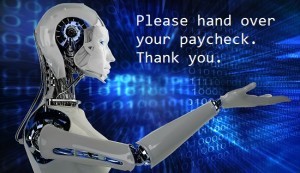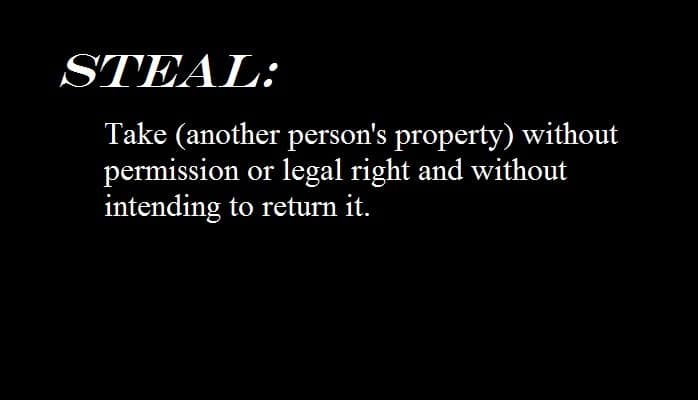Can you remember the last time you went to the doctor? Or going to the factory floor to inspect an equipment you regularly checked for the last 20 years? Fortunately, we would ask these questions to ourselves a few decades from now as the Internet of Things (IoT) may take, not all, but at least some of our jobs. Before you get scared or feel asphyxiated, read more to know what may happen in the decades to come.

Do you feel your industry will be consumed by IoT?
What we can speculate is that traditional jobs will converge with technology to form a hybrid type. There will be a new wave of job options available and unlike our usual ways, we will need to establish a high-tech fully automated and computerised office at the most unlikeliest of places. Imagine your farmland being looked after by gigantic harvesters, programmed to go about their routines as per the season; while you are taking a nap at beautiful beaches at Bahamas or Hawaii.
You are being watched
Let us admit it. We are being watched. All our smart phones, wearables, etc, which did not exist a few decades ago are all around us. There are applications that gauge and recommend activities that we must engage in, in order to fulfill a particular task. The obvious question is how this steals our jobs. Well, imagine this condition where you are being watched by your managers and higher officials through these IoT devices even to the microscopic levels of your interests and habits. Well, it will become a bit frustrating, but do believe that such techniques will become the Heuristics to gauge employee-productivity and finally organisation capabilities.
Surprisingly, some warehouse companies are already using wearable sensors to track the movements of employees and materials in real-time. Hence, we must understand that at the end of the day, technology can hire you or fire you; well supposedly.
Follow the righteous path
Are you lost in a mall, wandering clueless to bag the best offers available around? You might be amazed to know that your smart phone literally has turnkey solutions to engage you into a shopping experience. Bluetooth low energy-based systems are catching up around the globe in retail spaces. Well, it is amazing to see how these low-maintenance pieces of technology are just mediating real-time data and prompting users with latest updates on their screens, with a simple message or a buzz heads-up.
Now let us ask ourselves how this steals our job. Imagine a retail store in a not-so-distant-future where we get in, shop and walk out proudly. Did we just miss the retail store guy or the service assistant walking towards us and asking “What help can I be of to you today?”
Who is driving the car?
There was a time in the 50’s and 60’s in the western world, where automobile expos showcased some of the most weird-looking automobile innovations and spaceship-like cars. They visualised a future where a family goes for a trip in a futuristic-looking vehicle jam-packed with happy kids and picnic baskets. The whole family is engaged in a conversation; but who is driving the car?
Self-driven cars are a reality now. Back in the days, sure we did not have the technology. Well, for now, we have come out of that scenario and filled our world with sensors and technology that communicate with each other in real-time. Re-routing, locating, commuting, picking-up commuters and dropping them at destinations can be done by a car connected to the grid alone.
Let us get back and ask ourselves of who will lose out here. We will see a version of UBER taxis which are driver-less, or Google cars lined up in the alleys, which would pick us up and all we need is to wave at the awaiting taxi.
Technology will efficiently take care of environment
The earth is populated by about 6.5 billion people and is growing in numbers. It is not only us who inhabit it, but it is a shared space. The human kind has been known for its advancement in technology, but the amount of natural resources we are using to sustain it is unfathomable and destructive. Now if we question ourselves about whether IOT can bring about a change here; the answer seems to be a pretty big yes.
A self-aware environment such as a smart home can optimise temperature control, and the amount of water and electricity used. Using efficient lighting system saves electricity, and similarly water consumption, if they are sensor-controlled.
On a macro-economic scale, this would drastically reduce expenses and wastage. If used on in an industrial scale, one can imagine the profits reaped by the industry.
This topic is more debatable and keeping it open to ours audience; do you really think if the IoT that we are creating will replace us one day?












